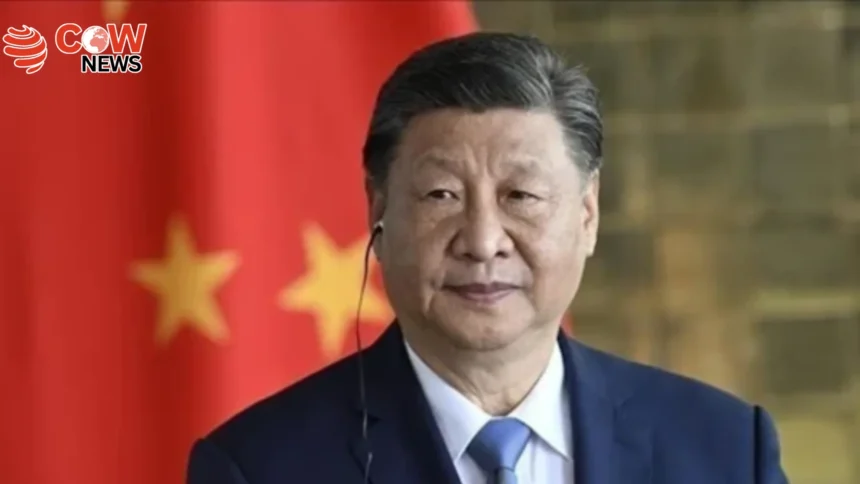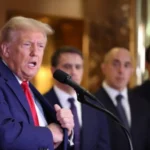Beijing (The COW News Digital) – As tensions continue to rise in the Middle East, Chinese President Xi Jinping has stepped into the diplomatic arena, presenting key proposals aimed at restoring peace and stability in the region. His statement comes amid escalating conflict between Iran and Israel and increasing global concern over the potential for a wider war.
According to a statement released by China’s Ministry of Foreign Affairs, President Xi has called for an immediate ceasefire, emphasizing that the protection of civilians must be the highest priority. “Dialogue and negotiations are the only viable path forward,” the statement noted. Xi urged the international community to intensify its peace efforts to prevent further deterioration of the situation.
The Chinese President’s remarks followed a phone conversation with Russian President Vladimir Putin. During the call, both leaders condemned the Israeli strikes on Iran, labeling them a “blatant violation of international law.” The two presidents expressed a unified stance, calling for a diplomatic resolution and firmly opposing any military solution to the Iranian nuclear issue.
President Xi made it clear that China supports Russia’s offer to mediate between Iran and Israel. “We believe that Russian mediation can help de-escalate the situation and bring all sides to the negotiation table,” Xi reportedly told Putin. This alignment between Beijing and Moscow is being seen as a significant geopolitical move amid shifting alliances in the global power structure.
In a veiled criticism of the United States, President Xi warned that any potential U.S. intervention in the Iran-Israel conflict could spark another dangerous crisis in the region. “Outside military involvement risks further destabilization and may trigger a broader conflict,” he cautioned.
Earlier, Russia had offered to mediate between Iran and Israel, with President Putin personally calling Israeli Prime Minister Benjamin Netanyahu and Iranian President Masoud Pezeshkian. Moscow emphasized its interest in preventing regime change in Iran, especially if such a development might lead to a pro-Western government.
China’s opposition to U.S. involvement adds another layer to the complex geopolitical dynamics surrounding the conflict. While Washington considers its options—balancing between supporting its ally Israel and avoiding direct military engagement—Beijing and Moscow are positioning themselves as champions of diplomacy and multilateralism.
The joint message from China and Russia highlights their strategic cooperation, particularly after signing a military partnership agreement earlier this year. Analysts suggest that both powers are leveraging the crisis to assert their influence and present themselves as stabilizing forces in contrast to what they perceive as aggressive Western policies.
China’s active diplomatic engagement is being viewed as a significant step in its evolving global role. By supporting mediation and calling for de-escalation, Beijing is signaling its interest in shaping peace efforts in a region long dominated by Western intervention.
As the world watches the Iran-Israel conflict unfold, China and Russia’s united front may represent the emergence of a new axis in global diplomacy—one that challenges the traditional power balance and aims to prevent another war in the Middle East.







